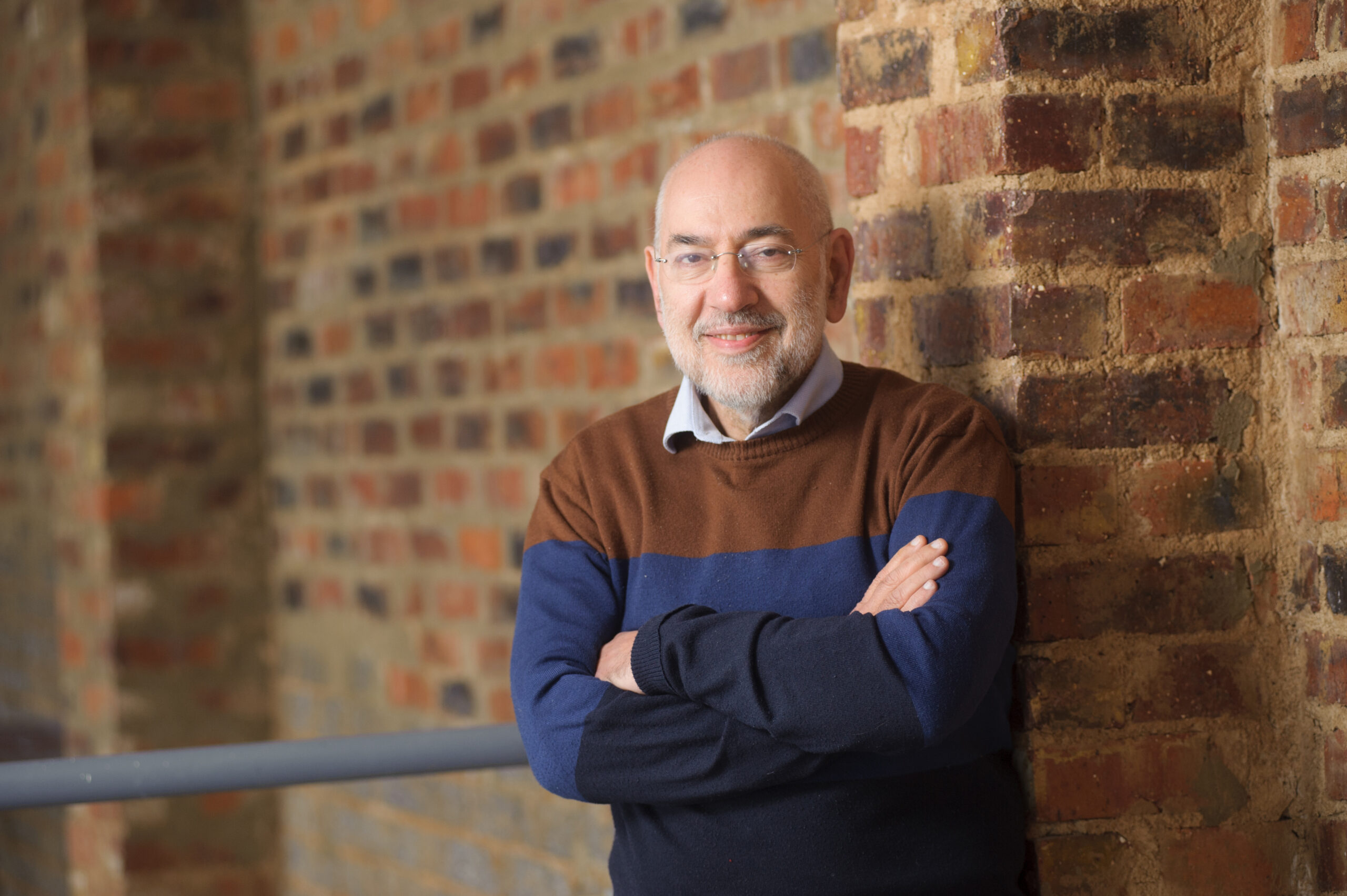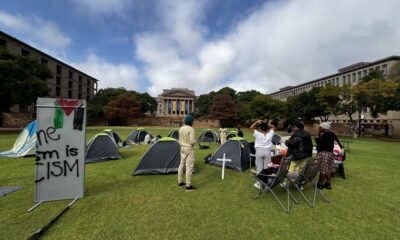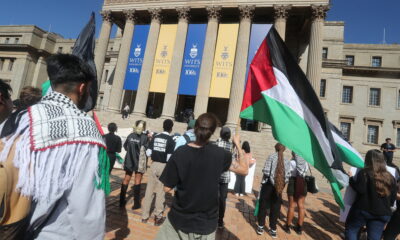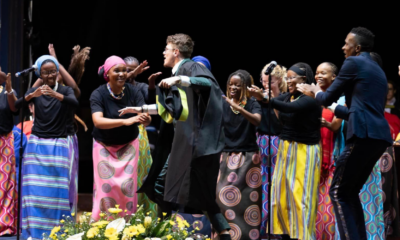
Tributes

Farewell, Grand Geek – your legacy lives on
I first met Professor Barry Dwolatsky in 2006, at the University of Cape Town, where we engaged around a national software strategy. The next time I met “Prof Barry”, the late emeritus professor in the School of Electrical and Information Engineering at the University of the Witwatersrand (Wits), was in my capacity as incoming deputy vice-chancellor: research, in what was a former night club in Juta Street in Braamfontein, the place’s black and white nouveau wallpaper still intact, its crumbling walls in the process of being knocked down, and its dance floor, once frequented by famous football stars during the 2010 Soccer World Cup, hacked to pieces.
The club was surrounded by a sprawl of dilapidated concrete structures posing as buildings – a degraded street of hopelessness. Barry, who passed away on 16 May 2023, stood amidst the rubble together with Dr Solomon Assefa, the then incoming head of IBM Research Africa.
“This is the home of Wits’ new digital innovation precinct,” I recall him saying. “It will be called Tshimologong, the place of new beginnings.” I was taken aback, because I couldn’t immediately envisage what the Grand Geek espoused, even though he described it meticulously and in grand detail. But this was because he was a visionary – he could see things that others couldn’t, he could imagine new worlds where others saw only what was before them, and he could create hope out of despair.
Barry breathed life into Tshimologong – a space for makers, entrepreneurs, innovators, and young people to create something from nothing, to soar to great heights, and to compete with the best in the world. He was an influencer who brought the right people together with the right resources at the right time. He gently coerced Wits’ administration and several public and private-sector entities to invest in his vision, which today forms part of his legacy. He convinced IBM to establish one of its prestigious research labs in the precinct, and brought on board many other partners, large and small.
And this wasn’t the first time he had done so.
An innovator and entrepreneur in the early 2000s, long before these buzzwords became trendy, Barry brought together dozens of software companies, academia, and government in a symbiotic partnership through the Joburg Centre for Software Engineering, which he co-founded and led for two decades. In a competitive environment usually fraught with contention and competition, Barry, in a speech delivered on the top floor of the Joburg Metro Building in the presence of the mayor, convinced captains of industry that there was much that they could achieve together to advance the ICT sector in South Africa while maintaining their respective trade secrets.
Always one to tinker with new technologies, Barry won me over when we delved into quantum computing and technologies. He made research pleasurable and effortless. In recognition of his contribution to the South African IT industry, he was named the South African IT Personality of the Year in 2013. In 2016, he received an award for Distinguished Service to IT from the Institute of IT Professionals of South Africa as well as the Vice-Chancellor’s Award for Academic Citizenship.
An academic and a mentor at heart, Barry dedicated more than 50 years of his life to Wits. He completed his electrical engineering degree in 1971 followed by his PhD. After graduating, he left South Africa in 1979, and spent a decade in the United Kingdom as a postdoctoral researcher at the University of Manchester’s Institute of Science and Technology, Imperial College London, and the GEC-Marconi Research Centre, where he worked on a number of large software research and development projects. Always curious, Barry later traversed the world in search of new ideas that he would throw into a hadron collider of possibilities, knowing that when they crossed at the right moment, they could help to create new worlds filled with opportunity.
He returned to Wits as an academic in 1989, and worked his way up the academic ladder to become a full professor in 2000. He continued with his teaching and research activities and spent the past few years conceptualising Wits’ innovation strategy, which he emphasised went beyond the digital sphere.
In April this year, the emeritus professor spoke at the launch of the Wits Innovation Centre, his latest brainchild. In conversation with Dr David Fine, also a Wits alumnus and innovator, Barry said, “The next 100 years will not simply be a continuation of the last 100 years. All organisations and institutions, including universities, will change, and the change will be rapid and profound. The best of these will position themselves to lead this change internally and externally, beyond only the digital realm.” This was his last profound public statement.
“Prof Barry” was well-known and well-loved by his students. In spite of his extensive experience and expertise, he always lent a listening ear and proffered advice humbly and unpretentiously, while making students, staff, and strangers feel special in the process. His confidence in young people is captured in his memoir, Coded History – My Life of New Beginnings, launched in November 2022. At the launch, he said, “Young people have the creativity and energy, the drive and the reason to build a new South Africa, a new Africa, and a new world. I believe in the future of our country. This is also the point of a university – to prepare people for the future.”
The book revealed much about his life as an underground software engineer in the struggle against apartheid, “the mission” that brought him back to South Africa from the United Kingdom where he lived in self-exile in the 1980s, and how, on the eve of democracy, he helped to build the country’s ICT industry. Never one to rest, Barry launched a podcast series titled Optimizing: Leading Africa’s Digital Future as the COVID-19 pandemic was sweeping the world.
Barry was a survivor. His life was threatened by the coronavirus, which he conquered. His book reveals how he nearly died at the age of 35, how he beat cancer multiple times, how he was almost stabbed to death outside a bank in Braamfontein in the 1990s, and how he, his wife, Rina, and an international visitor were metres away from a South African Broadcasting Corporation van when it exploded outside the Orbit Jazz Club during the #FeesMustFall protests. I believe he survived each time because he believed in new beginnings and realised that there was more for him to accomplish in this world.
I will miss Barry immensely as a dear friend who also mentored me in the field of innovation (an area which was new to me as a physicist). Having said this, following our last interaction in hospital the night before his passing, I’m comforted by the fact that he will rest in eternal piece, knowing that his legacy will live through the thousands of people he has motivated, through the walls of the many spaces that he has transformed, through the many vestiges that he leaves in his wake, through the new beginnings that will flourish through his inspiration, and that his lifelong dream of foregrounding innovation at Wits has been realised through the launch of the Wits Innovation Centre a mere month ago.
The outpouring of sympathy and condolences from around the world is testimony to the impact of Professor Barry Dwolatzky at Wits, in South Africa, and beyond. He is survived by his wonderful wife, Rina King, and his children, Leslie and Jodie, all of whom are part of the Wits family.
May his memory be a blessing to us all.
- Professor Zeblon Vilakazi, Fellow of the Royal Society is vice-chancellor and principal of the University of the Witwatersrand.











Mike Jankelowitz
May 26, 2023 at 12:15 am
So sorry for your loss Zeb. May his memory always be a Blessing.
Regards Mike